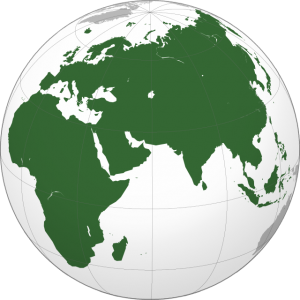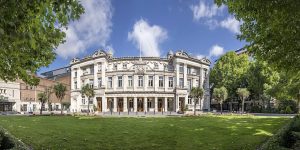CEREES Lecture
Monday 10 March, 18:00-20:00
‘Geopolitical shifts in Central Asia’s relationship with Russia after the invasion of Ukraine‘

Venue: Montagu Lecture Theatre, Graduate Centre (GC601), Queen Mary University of London, Mile End Road London E1 4NS
Book here: Eventbrite
About the Lecture:
About the Speaker:
Dr Bhavna Dave is Senior Lecturer in Politics of Central Asia at SOAS. Her research focuses on geopolitics of the Eurasian region, ethnic and language policies, and state-society relations across Central Asia and labour migration in Eurasia. She is interested in the current reconfiguration of relations between Russia and states in the Eurasian region. She has published works on labour migration in Kazakhstan and Russia, language and ethnic identities, minorities, elections and patronage in Kazakhstan, EU-Central Asia relations, the role of the Russian Far East in Russia’s ‘pivot to Asia’ policy, social and security implications of China’s Belt and Road initiative in Central Asia, and India-Central Asia relations.
Her current research and writing are centred on: 1) Geopolitics and alliances in Eurasia, and the consequences of China’s Belt and Road initiative for Central Asian states and the Russian Far East; and 2) the political economy and legal framework of labour migration in Eurasia and effects on the migrant sending states. She has held positions as Visiting Research Scholar at the Institute of Developing Economies (IDE-JETRO) in Chiba, Japan, S. Rajaratnam Institute of International Studies (RSIS), Nanyang Technological University, Singapore, and Watson Institute, Brown University. She has taught masterclasses and short courses in Russian at numerous universities across Russia, Kazakhstan, Kyrgyzstan, and Tajikistan.
She was part of an Erasmus+ Project Eurasian Insights: Strengthening Central Asian Studies in Europe in 2018-2020 which developed online e-learning through a series of online lectures on YouTube and chapters in E-Handbook on Central Asia for teachers, students and experts.
She received her PhD from Syracuse University, New York. Her research has been supported by funding from British Academy, British Council, Open Society Foundation, IDE (Japan), MacArthur Foundation and research grants from SOAS. She is currently teaching postgraduate modules on State and Society in Central Asia and the Caucasus; Geopolitics and Security in Central Asia and the Caucasus; and an undergraduate module on Politics of Nationalism.
Event outline:
Welcome, by Andy Willimott & Jeremy Hicks (QMUL) – 18:00
Panel Discussion – 18:05
Discussion, chaired by Natalya Chernyshova (QMUL) – 18:50
Drinks reception, meet the speaker – 19:10

Shape the Conversation
To join our mailing list, participate in our programme of events, or find out how we can support your research, please contact hss-cerees@qmul.ac.uk
